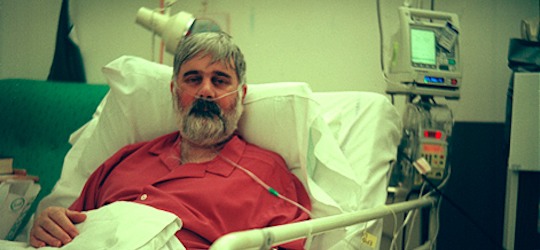
Sick people generally want to get better, and doctors work for that result. If there’s any way to improve the odds of recovery, then both doctors and patients want to know.
Modern medicine can do amazing things, and the human body has amazing recuperative powers. But sometimes more is needed. Sometimes people ask God for a healing miracle, and sometimes it seems as if he does indeed heal.
But not all doctors and patients believe in divine healing, even if they believe in God, so not all pray for healing. But the evidence points to belief in God increasing the chances of recovering from some major illnesses. Cancer is the big one.
Bringing all the studies together
Many studies have been done on the links between belief in God and wellbeing. They generally find a positive correlation, but the conclusions have been variable. One of the best ways to draw stronger conclusions is via a meta-analysis – analysis of all the available studies to see what is the overall trend.
A doctor friend with an interest in cancer sent me the details of three recent (2015) meta-analyses relating to the health and wellbeing of cancer patients.
God, cancer and physical health
Eleven medical researchers considered more than 2000 studies, and used 101 studies (32,000 patients) which contained suitable statistical information. They tested for four different types of religiosity and spirituality:
- Affective – subjective emotional experience (both positive and negative), such as transcendence, purpose or anger;
- Behavioural – the use of religious or spiritual practices or behaviours such as prayer, meditation or attending religious services;
- Cognitive – statements about religion or spirituality that an individual believes to be true;
- Other – criteria that didn’t fit into these categories, or were a combination of more than one category.
Physical health was defined as physical wellbeing (ability to perform normal daily activities), functional wellbeing (perceived difficulties in fulfilling roles at home, at work, or in the community due to physical health), and self-reported physical symptoms (ie, fatigue, pain, sleep, etc).
Results
Overall, the study found statistically significant, though “modest”, relationships between religiosity or spirituality and physical health, with religiosity/spirituality seen as contributing to improved physical health.
The relationships between the different aspects of physical health and the different types of religiosity/spirituality were variable, with affective and cognitive (emotions and beliefs) having a stronger correlation and behavioural having little impact. Heather Jim: “These relationships were particularly strong in patients who experienced greater emotional aspects of religion and spirituality, including a sense of meaning and purpose in life as well as a connection to a source larger than oneself”.
God, cancer and mental health
Out of the more than 2000 initially examined, the same researchers found 148 studies relevant to mental health, measured by depression, anxiety and general wellbeing.
Results
The study found that the mental health of cancer patients was significantly related to religiosity/spirituality, this correlation being slightly stronger than the one for physical health.
Again, affective religiosity/spirituality was the most important contributor to mental wellbeing, while behavioural religiosity/spirituality had no real impact. Lead author John Salsman: “Spiritual wellbeing was, unsurprisingly, associated with less anxiety, depression, or distress” while “greater levels of spiritual distress and a sense of disconnectedness with God or a religious community was associated with greater psychological distress or poorer emotional well-being.”
God, cancer and social health
Social health was defined by the patients’ ability to maintain social roles and relationships. The study team found just 78 studies involving over 14,000 patients that were relevant to social health.
Results
There was a statistically significant relationship between social health and religiosity/spirituality, and again affective religiosity/spirituality was by far the strongest correlation, though this time all four aspects of religiosity/spirituality were significant.
Allen Sherman: “patients with stronger spiritual wel-being, more benign images of God (such as perceptions of a benevolent rather than an angry or distant God), or stronger beliefs (such as convictions that a personal God can be called upon for assistance) reported better social health …. In contrast, those who struggled with their faith fared more poorly.”
Take home message
This set of studies claims to be “the most comprehensive summary and synthesis of a rapidly growing area of psychosocial oncology: the role of religion and spirituality for patients and survivors managing the experience of cancer”.
The studies show that religion or spirituality has a modest but significant positive effect on all aspects of the wellbeing of cancer patients.The more emotional aspects of religion and spirituality are the most important, but the content of belief is also important.
If you found this worthwhile, you may like these:

Studies of medicine and religion
Medical studies on how religious faith affects our health and wellbeing
Are miraculous healings proof of God?
How religious faith affects our health and happiness
Photo Credit: jk-digital via Compfight cc.
